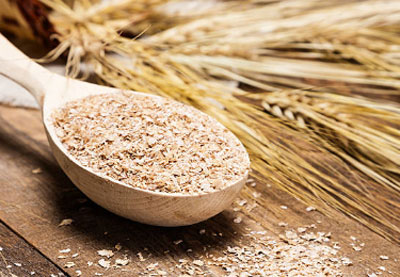Nutrition And Diets: Oat Bran-New Superfood For Cancer Patients Seeking to Reduce Radiation-Induced Gut Inflammation
Source: Nutrition And Diets Sep 29, 2020 5 years, 3 months, 2 weeks, 6 days, 23 hours, 56 minutes ago
Nutrition And Diets: Researchers from University of Gothenburg-Sweden, Lund University-Sweden and the University of South Australia in a preclinical study found that dietary oat bran can offset chronic gastrointestinal damage caused by radiotherapy, contradicting long-held clinical recommendations.

The goal of this study was to evaluate the influence of dietary fiber on radiation-induced inflammation.
For the study C57BL/6J male mice were fed a high-oat bran diet (15% fiber) or a no-fiber diet (0% fiber) and were either irradiated (32 Gy delivered in four fractions) to the colorectal region or only sedated (controls).
The dietary intervention started at 2 weeks before irradiation and lasted for 1, 6, and 18 weeks after irradiation, at which time points mice were sacrificed and their serum samples were assayed for 23 cytokines and chemokines.
The detailed analysis showed that irradiation increased the serum cytokine levels at all the time points analyzed. The No-fiber irradiated mice had significantly higher levels of pro-inflammatory cytokines than the high-oat irradiated mice at all time points. The results indicate that a fiber-rich oat bran diet reduces the intensity of radiation-induced inflammation, both at an early and late stage.
Based on the results, it seems that the advice to follow a low-fiber diet during radiotherapy may increase the risk of decreased intestinal health in cancer survivors.
The research findings are published in the journal: Nutrients
https://www.mdpi.com/2072-6643/12/8/2172
The high-fiber food item was able to lower inflammation levels, sidestepping the effects of radiation, indicating that the humble oat could be the new superfood for cancer patients as the international research shows a diet rich in fiber could significantly reduce radiation-induced gut inflammation.
Dr Andrea Stringer, gastroenterology and oncology researcher from University of South Australia says that the research provides critical new insights for radiology patients.
Dr Stringer told Thailand Medical News, "Cancer patients are often advised to follow a restricted fiber diet. This is because a diet high in fiber is believed to exacerbate bloating and diarrhea both common side effects of radiotherapy.”
He added, "Yet, this advice is not unequivocally evidence-based, with insufficient fiber potentially being counterproductive and exacerbating gastrointestinal toxicity. Our study compared the effects of high-fiber and no-fiber diets, finding that a fiber-free diet is actually worse for subjects undergoing radiotherapy treatment.”
The study findings showed that a diet without fiber generates inflammatory cytokines which are present for a long time following radiation, resulting in increased inflammation of the digestive system. Conversely, a fiber-rich diet decreases the presence of cytokines to reduce radiation-induced inflammation, both in the short and the long term.
Typically intestinal issues following radiotherapy are problematic for many cancer survivors.
Dr Stringer said, &qu
ot;In Europe, approximately one million pelvic-organ cancer survivors suffer from compromised intestinal health due to radiation-induced gastrointestinal symptoms. This is also commonplace in Australia and around the world with no immediate cure or effective treatment. If we can prevent some of inflammation resulting from radiation simply by adjusting dietary fiber levels, we could improve long-term, and possibly life-long, intestinal health among cancer survivors."
Oat bran is a great source of polyphenols, which are plant-based molecules that act as antioxidants. Oat bran is especially high in antioxidants compared to other parts of the oat grain, and it is a particularly good source of phytic acid, ferulic acid, and powerful avenanthramides .
Avenanthramides are a family of antioxidants unique to oats. They have been linked to reduced inflammation, anticancer properties, and lower blood pressure levels.
https://pubmed.ncbi.nlm.nih.gov/18461339/ and
https://pubmed.ncbi.nlm.nih.gov/15186945/ and
https://pubmed.ncbi.nlm.nih.gov/16139284/ and
https://pubmed.ncbi.nlm.nih.gov/19941618/
For more on
Nutrition and Diets, keep on logging to Thailand Medical News.
